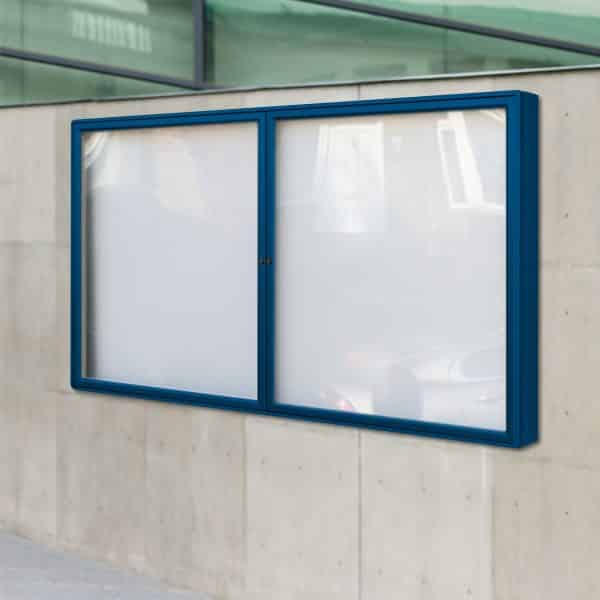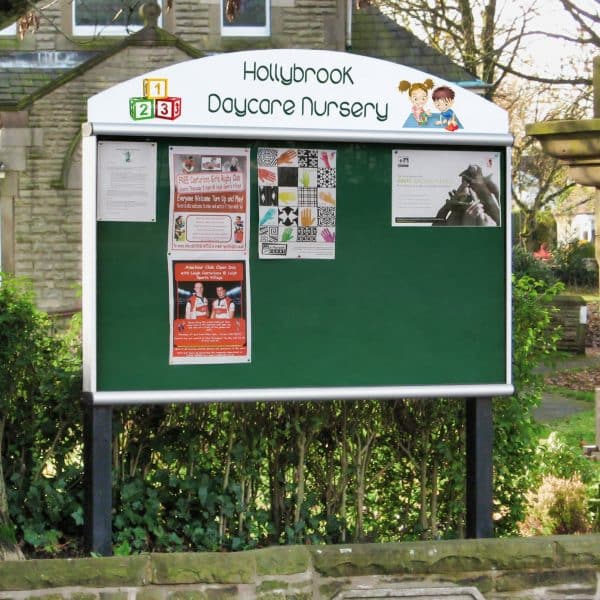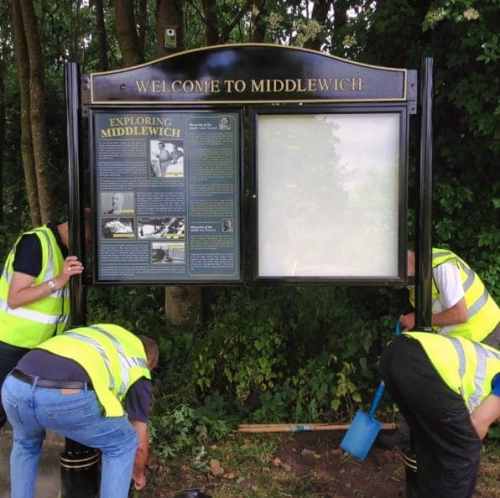Notice Board Company in Blackpool
At Noticeboards Online, we are a family-owned and operated business providing businesses, homes, schools, parishes, churches and other institutions all over the country with the best quality notice boards that truly stand the test of time.
Notice Boards That Help Deliver Your Message
An outdoor notice board should clearly display your announcements and withstand the worst weather. Our external notice boards are designed use on Walls, Posts and can also be Rail Mounted. We have one of the UK’s widest range of external weatherproof notice boards. Choose from aluminium, wood or recycled plastic for your new Notice Board.




Wall Mounted Notice Boards
If you are buying a notice board for a wall in Blackpool, we have a great selection with something for every budget.
Notice Boards Online has delivered thousands of wall notice boards throughout the country including Lancashire.

Post Mounted Notice Boards
If you are researching a free standing post mounted notice board in Blackpool, we have a massive range with something for every budget.
Notice Boards Online has supplied thousands of wall noticeboards throughout the country including Lancashire.
Noticeboard Suppliers In Blackpool
Our head office is in Kendal, The Lake District, and we have installation teams throughout the UK and this allows us to cover the entire mainland UK including Lancashire. So contact us with us at Noticeboards Online and make an enquiry today. In addition to your notice board being sophisticated, it will help you showcase your messages.
Notice Board Installation In Blackpool, Lancashire
All of our installation teams have PASMA and IPAF certificates for working at height and always adhere to our company Health & Safety procedures. We are members of the Safe Contractors Accreditation Scheme and are fully conversant with the recent DDA requirements.
We offer a comprehensive fully insured national installation service including Blackpool.
We complete as much work as possible off-site, to minimise disruption. Our installation teams are highly experienced, and we understand the need for the work to be quick, quiet, clean and safe.

About Blackpool
Blackpool is a large seaside resort and main harmony in the Borough of Blackpool in the ceremonial county of Lancashire upon the north west coast of England. The town is by the Irish Sea, between the Ribble and Wyre estuaries, 15 miles (24 km) west of Preston, 27 miles (43 km) north of Liverpool, 28 miles (45 km) northwest of Bolton and 40 miles (64 km) northwest of Manchester. At the 2011 Census, the unitary authority of Blackpool had an estimated population of 139,720, while the wider built-up area, which with includes areas uncovered the unitary authority, had a population of 239,409. This is the 2nd largest in Lancashire, as competently as the fifth most populous urban Place in the larger North West England region, after Manchester, Liverpool, Preston and Birkenhead.
Throughout the Medieval and Early Modern period, Blackpool was a coastal hamlet in Lancashire’s Hundred of Amounderness, and remained such until the mid-18th century with it became accepted in England to travel to the coast in the summer to tote up well-being. In 1781, visitors attracted to Blackpool’s 7-mile (11 km) sandy seashore were clever to use a extra private road, built by Thomas Clifton and Sir Henry Hoghton. Stagecoaches began meting out to Blackpool from Manchester in the same year, and from Halifax in 1782. In the to the lead 19th century, Henry Banks and his son-in-law John Cocker erected other buildings in Blackpool which increased its population from less than 500 in 1801 to more than 2,500 in 1851. St John’s Church in Blackpool was consecrated in 1821.
Blackpool rose to emphasis as a major centre of tourism in England behind a railway was built in the 1840s connecting it to the industrialised regions of Northern England. The railway made it much easier and cheaper for visitors to attain Blackpool, triggering an influx of settlers, such that in 1876 Blackpool was incorporated as a borough, governed by its own town council and aldermen. In 1881, Blackpool was a booming resort considering a population of 14,000 and a promenade given with piers, fortune-tellers, public houses, trams, donkey rides, fish-and-chip shops and theatres. By 1901 the population of Blackpool was 47,000, by which grow old its place was cemented as “the archetypal British seaside resort”. By 1951 it had grown to 147,000 people.
Shifts in tastes, combined subsequent to opportunities for Britons to travel overseas, affected Blackpool’s status as a leading resort in the late 20th century. Blackpool’s urban fabric and economy remains relatively undiversified, and firmly rooted in the tourism sector, and the borough’s seafront continues to attract millions of visitors every year. Blackpool’s major attractions and landmarks total Blackpool Tower, Blackpool Illuminations, the Pleasure Beach, Blackpool Zoo, Sandcastle Water Park, the Winter Gardens, and the UK’s only steadfast first-generation tramway.